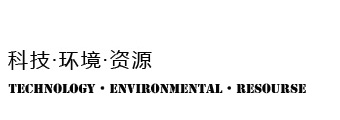Why Failing to Recycle Electronics Leaves Gold Mines Untapped
What is electronic waste? We think of old phones and old laptops, but is that definition too limited?
The best definition of e-waste is any product you discard that is still working, is connected to a plug, and has a battery. This also includes devices that generate electricity, like solar panels. It’s a lot of products, and people should think more about how many of these gadgets they have in the house. The number is about 80 devices per family. But when you tell people, they don’t believe you.
So I say, just take a piece of paper and start counting. When you finish this list, you should go back and think again about what you have in drawers and you will find 10 to 15 products minimum that you didn’t think of at first, like an electric toothbrush or power tools or lamps. It’s unbelievable.
I’ve seen statistics saying that electronics is the fastest-growing source of waste and the problem is getting worse. I’m probably part of the problem because I never do anything with old laptops. I just keep them around.
Yes, exactly. That’s the problem. Think about it: you don’t store food waste at home, or plastic waste or packaging. You get rid of it as soon as possible. But electronic waste is different. It’s easy to find a place to store them, unlike with food waste. And we are emotionally attached to our phones, PCs, and cameras, so it’s difficult to throw these gadgets away.
Plus, even if they are broken, sometimes people still keep them. That’s a huge amount of material that is not entering the recycling chain. Every one of us, without thinking, is keeping this at home and preventing natural resources from going back into the economic cycle.
The idea of recycling e-waste or doing “urban mining” isn’t new, right?
It’s not a new trend, but the term “urban mining,” has been introduced recently to explain one particular concept. Take the example of gold. Gold is present in nature, and, on average, the concentration of gold is about 0.5 grams of gold for every one ton of material. So if you go in your garden and start digging, after you make a big hole and dig out one ton of material, you have the chance to find half a gram of gold. That’s the average concentration on Earth.
Of course, in some places, gold is more concentrated, like gold mines. So, there, you dig one ton of material, and you can find five or six grams of gold.
Now, if you look at how much gold you have in a single mobile phone, it’s obviously not a lot. But in one ton of mobile phones, there is usually about 350 grams of gold. That’s 80 times higher than the concentration you have in gold mines. That’s why we call it “urban mining.” We say it’s much more efficient to extract gold from electronic waste. It’s much more concentrated.
What are the materials we’re trying to retrieve? Are they all metals?
The majority of electronic waste is metal-dominated: iron, copper, aluminum, and then plastics, of course. In much smaller amounts, you have more precious metals like copper, silver, gold, palladium, iridium, and rare earth metals. And all those fancy technology metals are widely used by the electronics industry. There’s lithium, cobalt…
Historically, metals have value, and you can recycle metal forever. For plastic, it’s different because every time you recycle the plastics, the mechanical properties don’t necessarily remain the same.







Leave a Comment